Speed is the key to collaboration with overseas startups. A sense of “urgency” held by new fibona members from Asian countries.
2022.08.24Shiseido's research institute is promoting the "fibona" open innovation program, which aims to "fuse external knowledge and people.”
New members include researchers from Asia and those who have lived abroad. Why did you decide to join fibona now? How do you see the importance of working with overseas startups to accelerate open innovation and to promote global collaboration?
The conversation, conducted in English, featured Kuanting Lin from Taiwan, Jianing Wang from China, and Yusuke Makino, who has lived in Singapore and Australia.
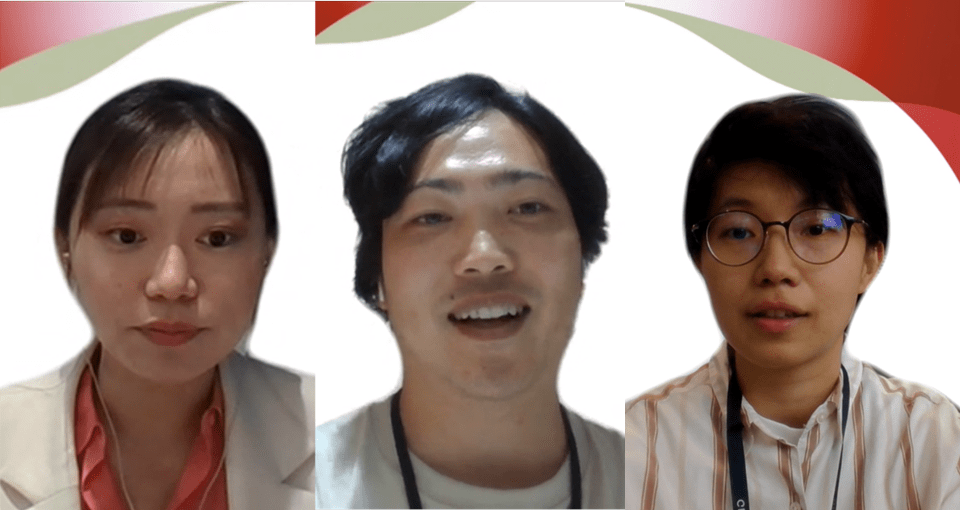
fibona expects to collaborate with people outside the company
――Please tell us about your daily work and the projects you are in charge of at fibona.
Lin:
My name is Lin and I am from Taiwan. I have lived in Japan for three years and have been with Shiseido also for three years. I have been involved with fibona in "Co-creation with Startups," for the past two years. I am looking forward to the opportunity to work with people from outside the company across industries.
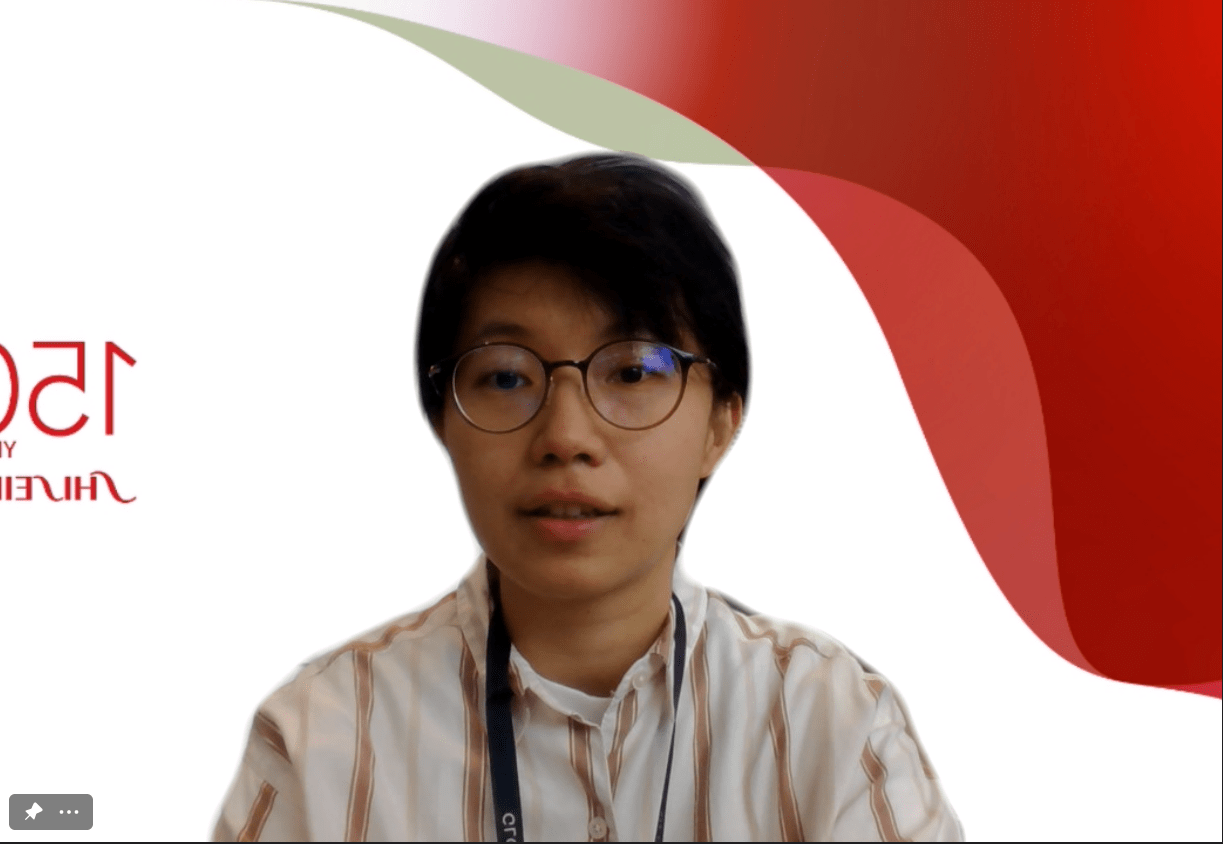
Wang:
My name is Wang from the Brand Value Development Institute. I am from China, and have lived in Japan for 11 years. I have been with Shiseido for four years. My first year was in hair care products, and after that I worked in product development for the skin care products division. I'm involved in "Co-creation with Startups" at fibona.
Makino:
I am Makino, also from the Brand Value Development Institute. I am in charge of developing body care and cleansing products, and I joined fibona because I was attracted to its concept and thought I could make use of my experience of living in Australia and working in Singapore. I am in charge of "Cultivation" and "Co-creation with Startups" at fibona.
――What activities of fibona impressed you?
Lin:
The most memorable activity of fibona so far was the overseas presentation screening in December 2021, where we started co-creation with a Korean startup company. It was very stimulating because I was also involved in the same kind of research. I felt it was borderless and revolutionary to co-create directly with overseas start-ups and create something that cannot be realized in Japan.
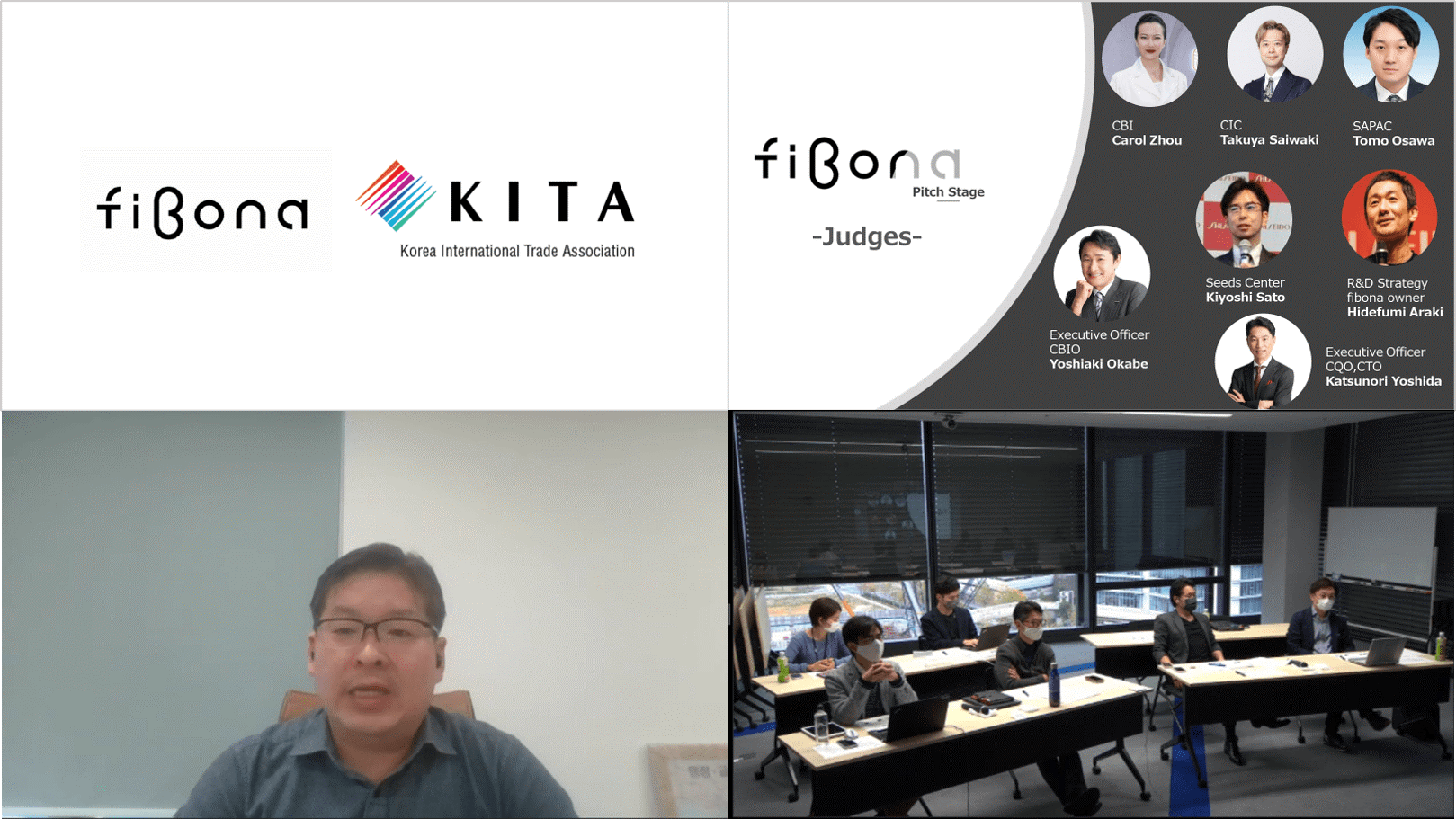
Makino:
There are so many things I have learned from fibona that it is difficult to sum them up in one word, but if I had to pick one, I would venture to say that I have learned a lot and been inspired by the speakers at the events and the members who have attended. Many of the speakers have unique perspectives on the world, and the opportunity to talk with people I would not otherwise meet in my daily life or in my regular work is invaluable. For me, it is a motivating opportunity to generate new ideas.
I also attended an event that invited some of the best senior researchers in the company, and the opportunity to access the knowledge they had was invaluable. I was able to talk to many of them very comfortably when I met them at the company. I think fibona is unique in being able to create such a forum.
Wang:
I am new to fibona and have not yet participated in any events, but I am hoping to use my own outside network to organize lectures and online events. I would like to create better opportunities for collaboration.
Co-creation with overseas startups is key for the large companies
---fibona's activities, which until now have been focused on domestic markets, are now in their fourth year, and the organization is expanding its horizons overseas. What do you think about the necessity and significance of searching for and co-creating overseas startups?
Makino:
Every country and region has its own uniqueness, and I believe that startups represent that uniqueness. However, as companies grow in size, their products tend to become generalized and lose their uniqueness, and I would like to change that. I believe that mixing foreign and Japanese culture is a good strategy to differentiate oneself from other companies. Collaboration with foreign companies should become increasingly important in the future.
Lin:
As a Taiwanese, I have great faith in Japanese companies, but I feel that Japanese companies are weak when it comes to working with startups. For example, in China, they sometimes make huge investments in small companies in order to achieve faster movement. Examples of industries that have achieved rapid growth as a result are video platforms and the electric vehicle industry, but I think that in Japan there are only a small number of such trends emerging.
Wang:
I think one of the reasons behind the difficulty in advancing startup collaboration is the Japanese culture and mindset. While older people have decades of experience and achievements and are very dependable, I feel that there are situations where it is difficult to entrust younger people or to accept new ideas or fusions with other fields. Then there may be cases where large companies only want to work with other large, trustworthy companies.
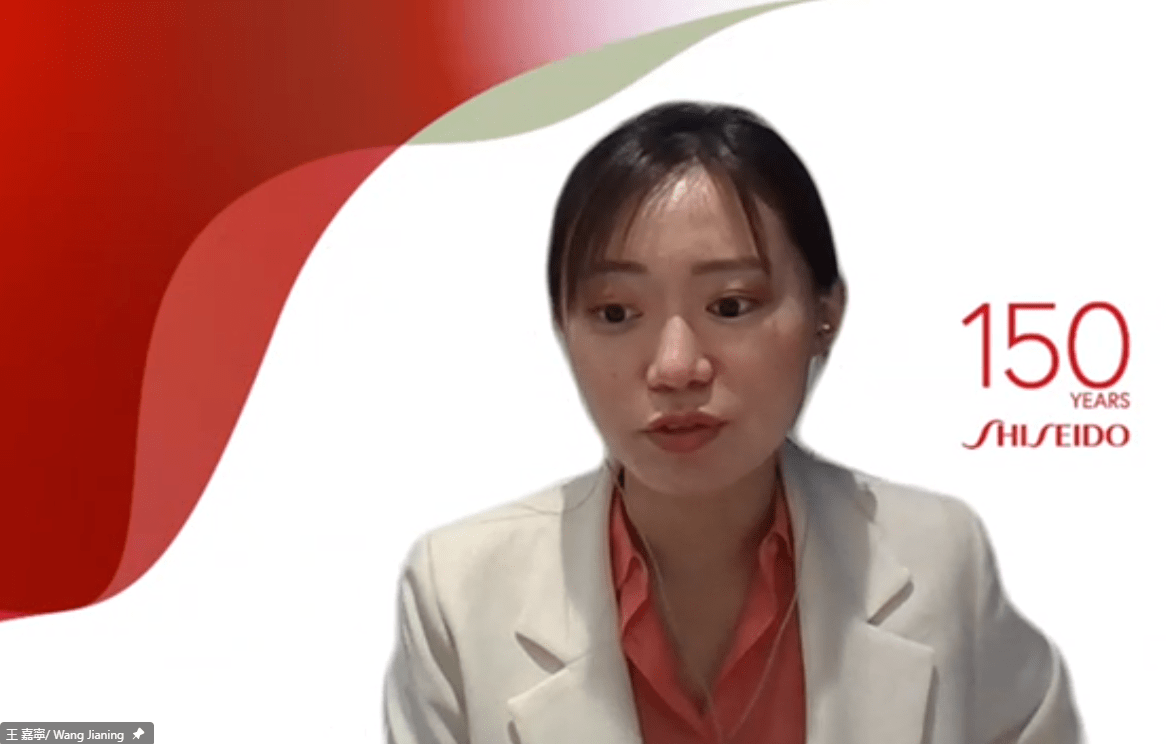
Lin:
I feel that Japanese companies tend to be reluctant about takings risks due to various restrictions. Currently, global technology companies in Asia are taking risks, investing in startups, and trying to take the initiative in the industry. If Shiseido doesn’t make such a move, it will be left behind. I have such a sense of urgency, and I hope that fibona will become an opportunity for Shiseido to proactively incorporate new things from the outside and create great opportunities.
I believe that Shiseido is a market-dominating company in Asia, where it is predicted that by 2040, almost half of the world's purchases will be concentrated in Asian markets, with the exception of the Middle Easter region. Shiseido should capture this market. Japan is an Asian country, and Asian cosmetics manufacturers know Asian people's skin best. I think Shiseido should focus more on the Asian market and approach foreigners, especially Chinese, more aggressively.
---Specifically, which industries and regional startups are you interested in collaborating with? What are your thoughts on each, including those outside of the cosmetics industry?
Wang:
I am interested in the field of plastic cosmetic surgery. For example, cosmetic surgery is trending now in China, Brazil, and the United States. This idea is just an example, but I would like to effectively utilize fibona’s “Co-creation with Startups” to promote such projects.
Lin:
For me, as an industry, it’s IoT. I believe that something like personalized consumable electronics would be a good fit for wellness. I am interested in developing somewhere that crosses the wellness, beauty, and consumable areas.
Then there is the hotel industry. It will be possible to create a service that fuses the strengths of both, where luxury and relaxation are not only for the outside of the body, but also for the inside. In order to create such new services, we will need to collaborate with fields such as chemistry, physics, mathematics, computer science, and biology.
Makino:
I would like to collaborate more with startup companies in Yokohama City where our institute is located. I believe there are many attractive companies in Yokohama City that we do not yet know about. Personally, I think it would be fascinating to co-create with neuroscience and digital fields, where we can visualize and evaluate a wider range of customers' emotions and sensations when using Shiseido's products and services.
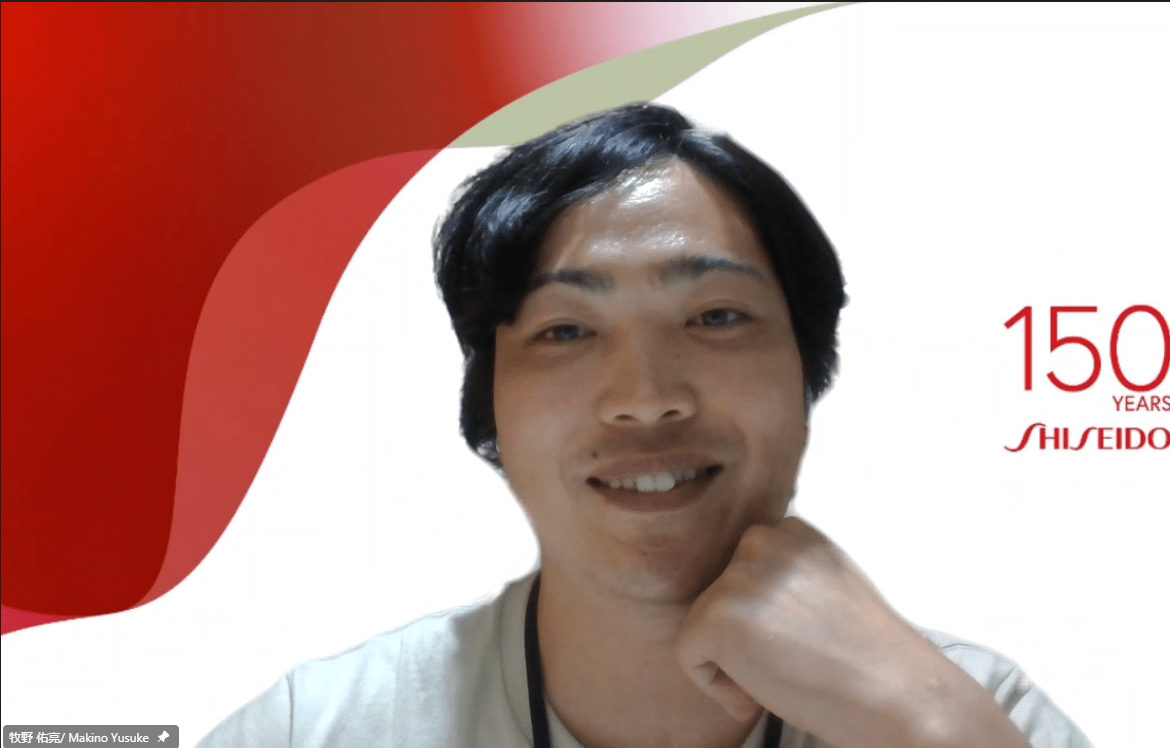
Processes to facilitate global collaboration, Japan's unique strengths
---Do you see any barriers to promoting global collaboration, or any business culture or practices in Japan or Shiseido that you think should be changed in a flexible manner?
Makino:
I hope that a culture will be fostered where people can be prouder of their failures as a result of their challenges. If we take it for granted that we will succeed, we may be unconsciously challenging ourselves in a safe zone even though we think we are taking on a challenge. Of course, I am aware that taking on challenges entails risk, but I hope to create an environment where more people can take on challenges without worrying about what others think.
Lin:
I think the span of my long-term business plan is too long and the content too detailed. We should first try it out at about 30% of the time, then discuss it. If it's not good, we’ll stop. If it is good, we should continue, and if something needs to be changed, we can change the process. I think flexibility is necessary.
Wang:
Japanese people may be too concerned about the pecking order. For example, I sometimes hear people complain that they do not know how to proceed unless their superiors or other departments give them instructions, but I do not think it is necessary to let others decide what you should do. Just doing as you are told is not enough to create something new.
---Conversely, what business culture and strengths do you think are important for Japan and Shiseido?
Lin:
Integrity. Japanese people never lie. Sincerity is a very good thing, and I hope it never changes.
Makino:
I think Japanese companies have good teamwork. When a new person joins, everyone teaches him or her like a teacher and becomes his or her friend. I think it is a good environment where we can work hard and compete with each other.
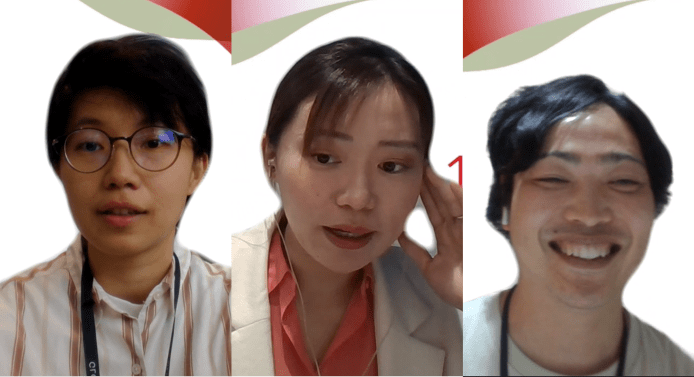
Wang:
I agree. The senior staff will teach you anything you need to know. As far as I know, in Chinese, American, and French companies, even if they seem to be working on the same team, in the end, I feel that many people are concerned about their own evaluation and contribution, and only think about themselves. Japanese people, on the other hand, don't have such ulterior motives.
Lin:
I think this is very valuable because in Taiwan and China, it is impossible to have a senior who can teach you everything.
Success story in five years, wanting to create a new portfolio with fibona
--Lastly, what do you hope to accomplish through the activities of fibona, and what are your ambitions?
Lin:
I strongly hope that fibona will achieve great success in the next five years. Ten years is too long because competition with other companies is so fierce. Through fibona, I would like to create a new portfolio and category for Shiseido. If we can achieve that, Shiseido will be much stronger.
Wang
I would like to change the mindset that "we should make a long-term plan" to realize new things. I would like to take new ideas and technologies and integrate them with Shiseido, create new values such as character and identity and output them, and make the cycle of output shorter.
Makino:
I hope to continue to work with the outside world over a long span of time, so that together we can find and sow the seeds of new business. I would also like to work with the spirit of "be a doer, not a thinker.” Nothing will happen if you just think about it.
(text: Sachiko Kutsuke edit: Kaori Sasagawa)